Alliance Partners
ATIA Alliance Partners, leaders in the assistive technology (AT) industry, provide products and services that enhance benefits and opportunities for persons with disabilities. The ATIA Alliance Partners program brings together other associations, non-profit agencies, and disability-related organizations in a rich collection of resources for all aspects of assistive technology.
Apply to become an ATIA Alliance Partner. Please note: you must be a non-profit organization to apply.
ATIA Alliance Partners
Association for the Advancement of Assistive Technology in Europe (AAATE)
AAATE is the European Assistive Technology Association. It has members in over 20 countries. 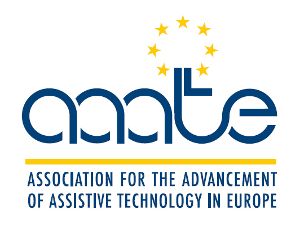 Members are either individuals or institutions. The scope of the Association is to foster in Europe access to assistive technology to all persons with disabilities that might benefit from it, children, adults and older people. Access to assistive technology and accessible (digital) environments is a human right laid down in the UN Convention on the Rights of Persons with Disabilities and in important European policies, such as the European Disability Strategy and the digital agenda. AAATE believes that persons with disabilities should have the same opportunities as anyone else in society, whether this is in education, employment, culture, sport, social life, etc.
Members are either individuals or institutions. The scope of the Association is to foster in Europe access to assistive technology to all persons with disabilities that might benefit from it, children, adults and older people. Access to assistive technology and accessible (digital) environments is a human right laid down in the UN Convention on the Rights of Persons with Disabilities and in important European policies, such as the European Disability Strategy and the digital agenda. AAATE believes that persons with disabilities should have the same opportunities as anyone else in society, whether this is in education, employment, culture, sport, social life, etc.
In order to fulfill its mission AAATE implements several activities, such as workshops, conferences, publications, networking events and it actively participates in projects at international level. AAATE holds every two years a major international AT conference. It further collaborates with IOS press in the publication of the “Technology and Disability” journal, which is open to authors from all around the world.
AAATE is among the founding members of the Global Alliance of Assistive Technology Organisations.
AAC Institute
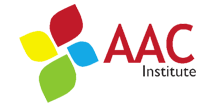
AAC Institute is a 501c3 not-for-profit charitable organization dedicated to the highest performance communication for people who use augmentative and alternative communication (AAC). Resources offered for people who use AAC, families, and professionals include an information-packed web site, clinical services, performance measurement tools, and evidence to support decisions and practice.
Academy for Certification of Vision Rehabilitation & Education Professionals (ACVREP)
ACVREP’s Mission is to establish a worldwide standard of service delivery to people who are blind or visually impaired through the certification of vision rehabilitation and education professionals. Certifications include Certified Assistive Technology Instructional Specialist “CATIS”, Certified Orientation & Mobility Specialist “COMS”, Certified Low Vision Therapist “CLVT” and Certified Vision Rehabilitation Therapist “CVRT”. Our Vision is that all people with vision impairment receive services from highly qualified professionals.
professionals. Certifications include Certified Assistive Technology Instructional Specialist “CATIS”, Certified Orientation & Mobility Specialist “COMS”, Certified Low Vision Therapist “CLVT” and Certified Vision Rehabilitation Therapist “CVRT”. Our Vision is that all people with vision impairment receive services from highly qualified professionals.
Access Technology Higher Education Network

Access Technology Higher Education Network (ATHEN) exists to collect and disseminate best practices in access technology within and for the post-secondary education environment as well as present a collective voice for the professional practice of access technology in higher education.
ADA National Network
 The ADA National Network provides information, guidance and training on the Americans with Disabilities Act (ADA), tailored to meet the needs of business, government and individuals at local, regional and national levels. The ADA National Network consists of ten Regional ADA National Network Centers located throughout the United States that provides personalized, local assistance to ensure that the ADA is implemented wherever possible. We are not an enforcement or regulatory agency, but a helpful resource supporting the ADA’s mission to “make it possible for everyone with a disability to live a life of freedom and equality.” The ADA Centers are funded by the National Institute on Disability Rehabilitation and Research (NIDRR), US Department of Education.
The ADA National Network provides information, guidance and training on the Americans with Disabilities Act (ADA), tailored to meet the needs of business, government and individuals at local, regional and national levels. The ADA National Network consists of ten Regional ADA National Network Centers located throughout the United States that provides personalized, local assistance to ensure that the ADA is implemented wherever possible. We are not an enforcement or regulatory agency, but a helpful resource supporting the ADA’s mission to “make it possible for everyone with a disability to live a life of freedom and equality.” The ADA Centers are funded by the National Institute on Disability Rehabilitation and Research (NIDRR), US Department of Education.
The ALS Association
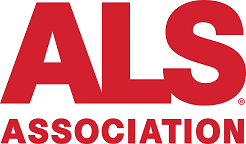 Established in 1985, The ALS Association is the only national nonprofit organization fighting ALS on every front. By leading the way in global research, providing assistance for people with ALS through a nationwide network of chapters, coordinating multidisciplinary care through certified clinical care centers, and fostering government partnerships, The Association builds hope and enhances quality of life while aggressively searching for new treatments and a cure.
Established in 1985, The ALS Association is the only national nonprofit organization fighting ALS on every front. By leading the way in global research, providing assistance for people with ALS through a nationwide network of chapters, coordinating multidisciplinary care through certified clinical care centers, and fostering government partnerships, The Association builds hope and enhances quality of life while aggressively searching for new treatments and a cure.
As the preeminent ALS organization, The Association leads the way in research, care services, public education, and public policy — giving help and hope to those facing the disease. The Association’s nationwide network of chapters provides comprehensive patient services and support to the ALS community. The mission of The ALS Association is to discover treatments and a cure for ALS, and to serve, advocate for, and empower people affected by ALS to live their lives to the fullest.
American Foundation for the Blind (AFB)
 American Foundation for the Blind (AFB) is a national non-profit organization that focuses on expanding the possibilities of people with vision loss by increasing access to technology, providing professionals with tools to serve people with vision loss and promoting healthy and independent living.
American Foundation for the Blind (AFB) is a national non-profit organization that focuses on expanding the possibilities of people with vision loss by increasing access to technology, providing professionals with tools to serve people with vision loss and promoting healthy and independent living.
American Occupational Therapy Association (AOTA)
 Founded in 1917, the American Occupational Therapy Association (AOTA) represents the professional interests and concerns of more than 140,000 occupational therapists, assistants and students nationwide. The Association educates the public and advances the profession of occupational therapy by providing resources, setting standards including accreditations and serving as an advocate to improve health care.
Founded in 1917, the American Occupational Therapy Association (AOTA) represents the professional interests and concerns of more than 140,000 occupational therapists, assistants and students nationwide. The Association educates the public and advances the profession of occupational therapy by providing resources, setting standards including accreditations and serving as an advocate to improve health care.
Based in Bethesda, Md., AOTA’s major programs and activities are directed toward promoting the professional development of its members and assuring consumer access to quality services so patients can live life to its fullest.
American Speech-Language-Hearing Association (ASHA)
 American Speech-Language-Hearing Association (ASHA) is the professional, scientific, and credentialing association for 135,000 members and affiliates who are speech-language pathologists, audiologists, and speech, language, and hearing scientists in the United States and internationally. The Division on Augmentative and Alternative Communication of ASHA is dedicated to improving the quality and availability of augmentative and alternative communication services.
American Speech-Language-Hearing Association (ASHA) is the professional, scientific, and credentialing association for 135,000 members and affiliates who are speech-language pathologists, audiologists, and speech, language, and hearing scientists in the United States and internationally. The Division on Augmentative and Alternative Communication of ASHA is dedicated to improving the quality and availability of augmentative and alternative communication services.
Association of Assistive Technology Act Programs (ATAP)
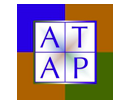 The Association of Assistive Technology Act Programs (ATAP) is a national, member-based organization, comprised of state Assistive Technology Act Programs. Established in 1997, ATAP provides support and technical assistance to its members to enhance the quality and effectiveness of AT Programs at the state and local level, and facilitates the coordination of state AT Programs nationally. ATAP represents the needs and interests of the state AT Programs and is the national voice advocating on their behalf. ATAP collaborates with other nationally-based disability, service provider and advocacy groups to develop successful strategies for getting AT to people who need it.
The Association of Assistive Technology Act Programs (ATAP) is a national, member-based organization, comprised of state Assistive Technology Act Programs. Established in 1997, ATAP provides support and technical assistance to its members to enhance the quality and effectiveness of AT Programs at the state and local level, and facilitates the coordination of state AT Programs nationally. ATAP represents the needs and interests of the state AT Programs and is the national voice advocating on their behalf. ATAP collaborates with other nationally-based disability, service provider and advocacy groups to develop successful strategies for getting AT to people who need it.
Association on Higher Education And Disability (AHEAD)
![]() Association on Higher Education and Disability (AHEAD) is a professional membership organization for individuals involved in the development of policy and in the provision of quality services to meet the needs of persons with disabilities involved in all areas of higher education. AHEAD is actively involved in all facets of promoting full and equal participation by individuals with disabilities in higher education; and supporting the systems, institutions, professions, and professionals who attend to the fulfillment of this important mission.
Association on Higher Education and Disability (AHEAD) is a professional membership organization for individuals involved in the development of policy and in the provision of quality services to meet the needs of persons with disabilities involved in all areas of higher education. AHEAD is actively involved in all facets of promoting full and equal participation by individuals with disabilities in higher education; and supporting the systems, institutions, professions, and professionals who attend to the fulfillment of this important mission.
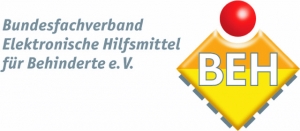 BEH eV
BEH eV
Bundesfachverband Elektronische Hilfsmittel für Behinderte eV (BEH) is the German AT industry association, founded in 1997. The BEH is an association of providers and manufacturers of electronic devices for the disabled in Germany. The aim of the association is to ensure the quality of care for disabled people with electronic tools.
The BEH promotes innovation and the exchange of research in the area of electronic tools. It sets technical standards to combine tools from different suppliers. The BEH operates the information exchange with independent counseling centers and disabled associations. He is a contact and negotiation partner for cost-bearers, politicians and other associations.
Center for Applied Special Technology (CAST)
 Center for Applied Special Technology (CAST) Founded in 1984 as the Center for Applied Special Technology, CAST is a nonprofit education research and development organization that works to expand learning opportunities for all individuals, including those with disabilities, through Universal Design for Learning.
Center for Applied Special Technology (CAST) Founded in 1984 as the Center for Applied Special Technology, CAST is a nonprofit education research and development organization that works to expand learning opportunities for all individuals, including those with disabilities, through Universal Design for Learning.
The Chicago Lighthouse For People Who Are Blind or Visually Impaired
 The Chicago Lighthouse is one of America’s most comprehensive social service agencies assisting people who are blind or visually impaired in leading richer, more independent lives. Among its numerous programs are an assistive technology program with state of the art equipment and a national help desk to service the computer problems of people who are blind; the USA’s oldest and most prominent low vision clinic; and one of the country’s few remaining clock manufacturing facilities, which provides jobs for people who are blind or visually impaired.
The Chicago Lighthouse is one of America’s most comprehensive social service agencies assisting people who are blind or visually impaired in leading richer, more independent lives. Among its numerous programs are an assistive technology program with state of the art equipment and a national help desk to service the computer problems of people who are blind; the USA’s oldest and most prominent low vision clinic; and one of the country’s few remaining clock manufacturing facilities, which provides jobs for people who are blind or visually impaired.
Communication Matters (ISAAC UK)
Communication Matters is the UK charity for Augmentative and Alternative Communication (AAC). We are also the UK chapter of ISAAC (the International Society for AAC). We support people of all ages who find it hard to communicate because they have little or no clear speech. AAC may be computer-based equipment, apps, communication boards and books using text, symbols, or signing. Verbal communication can be compromised across all ages and disabilities, for example in cerebral palsy, motor neurone disease or Parkinson’s disease, or in those who have had a brain injury or stroke, or have cognitive impairments, or autism. Our vision is a world where all individuals have a right to a voice through the provision of communication solutions and ongoing support services. We exist to support people who use Augmentative and Alternative Communication (AAC) in their basic human right to communicate, be included and heard in an equitable society. We aim to achieve this by increasing awareness about AAC, improving service standards, encouraging AAC research, and empowering AAC users.
DAISY Consortium
The DAISY Standard (officially ANSI/NISO z39.86 Specifications for the Digital Talking Book) has revolutionized the reading experience for people with print disabilities around the globe. DAISY, 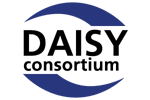 e Digital Accessible Information System, is the world’s most widely used assistive technology for reading. The DAISY Consortium consists of nearly 70 non-profit organizations representing 35 different countries and more than 20 for-profit companies working together to develop and promote international standards and technologies which enable equal access to information and knowledge by all people with print disabilities and the wider community.
e Digital Accessible Information System, is the world’s most widely used assistive technology for reading. The DAISY Consortium consists of nearly 70 non-profit organizations representing 35 different countries and more than 20 for-profit companies working together to develop and promote international standards and technologies which enable equal access to information and knowledge by all people with print disabilities and the wider community.
DATEurope
DATEurope ist the Digital Assistive Technology Industry Association for Europe. Our vision is to enable access todigital assistive technology for all. Our mission is Unite the DAT industry across Europe to influence legislation, awareness, sustainability, growth and commerce.
disABILITY Resource Center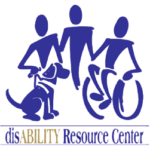
A non-residential Center for Independent Living that provides the 5 core services to persons with disabilities in Southeast, KY.
Easter Seals Disability Services
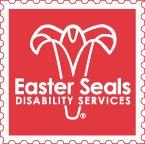 Easter Seals provides exceptional services to ensure that people living with autism and other disabilities have equal opportunities to live, learn, work and play. Through the provision of assistive technology service and support, Easter Seals works towards fulfilling this mission.
Easter Seals provides exceptional services to ensure that people living with autism and other disabilities have equal opportunities to live, learn, work and play. Through the provision of assistive technology service and support, Easter Seals works towards fulfilling this mission.
Employment Options, Inc.

Employment Options is a national Social Security Administration (SSA) Employment Network in the Ticket To Work program. For over 20 years, they have helped thousands of their clients successfully return to work. Their clients are recipients of Social Security disability benefits (SSDI) and (SSI) and receive free help to find suitable employment in either Work At Home or community positions in 47 states.
Employment Resources, Inc. (ERI)
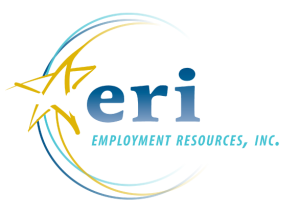 Employment Resources, Inc. (ERI) provides employment and benefits counseling, assistive technology, and community outreach services to people with disabilities who are considering or pursuing employment. ERI also offers statewide consultation, training and technical assistance to employers, human service professionals, disability advocates, government agencies and the public regarding disability and employment issues. Using creativity, new technology, and practical experience, ERI has provided individualized assistive technology consultation and training services to hundreds of individuals with disabilities. For people with disabilities looking for access to and information about computer and software technologies, ERI provides practical and creative solutions.
Employment Resources, Inc. (ERI) provides employment and benefits counseling, assistive technology, and community outreach services to people with disabilities who are considering or pursuing employment. ERI also offers statewide consultation, training and technical assistance to employers, human service professionals, disability advocates, government agencies and the public regarding disability and employment issues. Using creativity, new technology, and practical experience, ERI has provided individualized assistive technology consultation and training services to hundreds of individuals with disabilities. For people with disabilities looking for access to and information about computer and software technologies, ERI provides practical and creative solutions.
Els for Autism Foundation 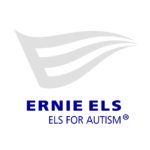
Els for Autism Foundation was established in 2009 by Liezl Els, Ernie Els, and Marvin R. Shanken. The Els’ son, Ben, is impacted by autism spectrum disorder, which affects 1 in 44 children in the U.S. The Foundation offers innovative, evidence-based programs for families and individuals across the lifespan in six focus areas: Education, Research, Global Support, Recreation Services, Adult Services, and Therapy Services. The Els for Autism Foundation serves families around the world, and also offers in-person programs and services at The Els Center of Excellence® in Jupiter, Florida.
Idaho State University – College of Business (Bengal Solutions) 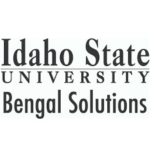
We provide free business consulting services and assistance with grant applications for assistive technology companies in the United States.
Illinois Association for Education & Rehabilitation of the Blind and Visually Impaired (IAER)
 Illinois Association for Education & Rehabilitation of the Blind and Visually Impaired (IAER), as a state chapter of the Association for Education & Rehabilitation of the Blind and Visually Impaired, IAER is committed to supporting professionals who serve persons with visual impairments. One of the largest chapters of the organization, IAER provides many services to professionals serving those who are blind and visually impaired. Support to members includes professional development options, high quality annual conferences, funding for special projects that benefit persons with visual impairments, and legislative advocacy that benefits our profession (and therefore the people we serve).
Illinois Association for Education & Rehabilitation of the Blind and Visually Impaired (IAER), as a state chapter of the Association for Education & Rehabilitation of the Blind and Visually Impaired, IAER is committed to supporting professionals who serve persons with visual impairments. One of the largest chapters of the organization, IAER provides many services to professionals serving those who are blind and visually impaired. Support to members includes professional development options, high quality annual conferences, funding for special projects that benefit persons with visual impairments, and legislative advocacy that benefits our profession (and therefore the people we serve).
ImpAACt Voices
AAC users make up a very small percentage of the population. We are scattered, isolated, and rarely or never get to meet anyone like us. This makes it difficult to impossible to have a community; ImpAACt Voices helps to fill in that gap. ImpAACt Voices is a non-profit organization who supports, empowers, and connects AAC users worldwide. ImpAACt Voices connects 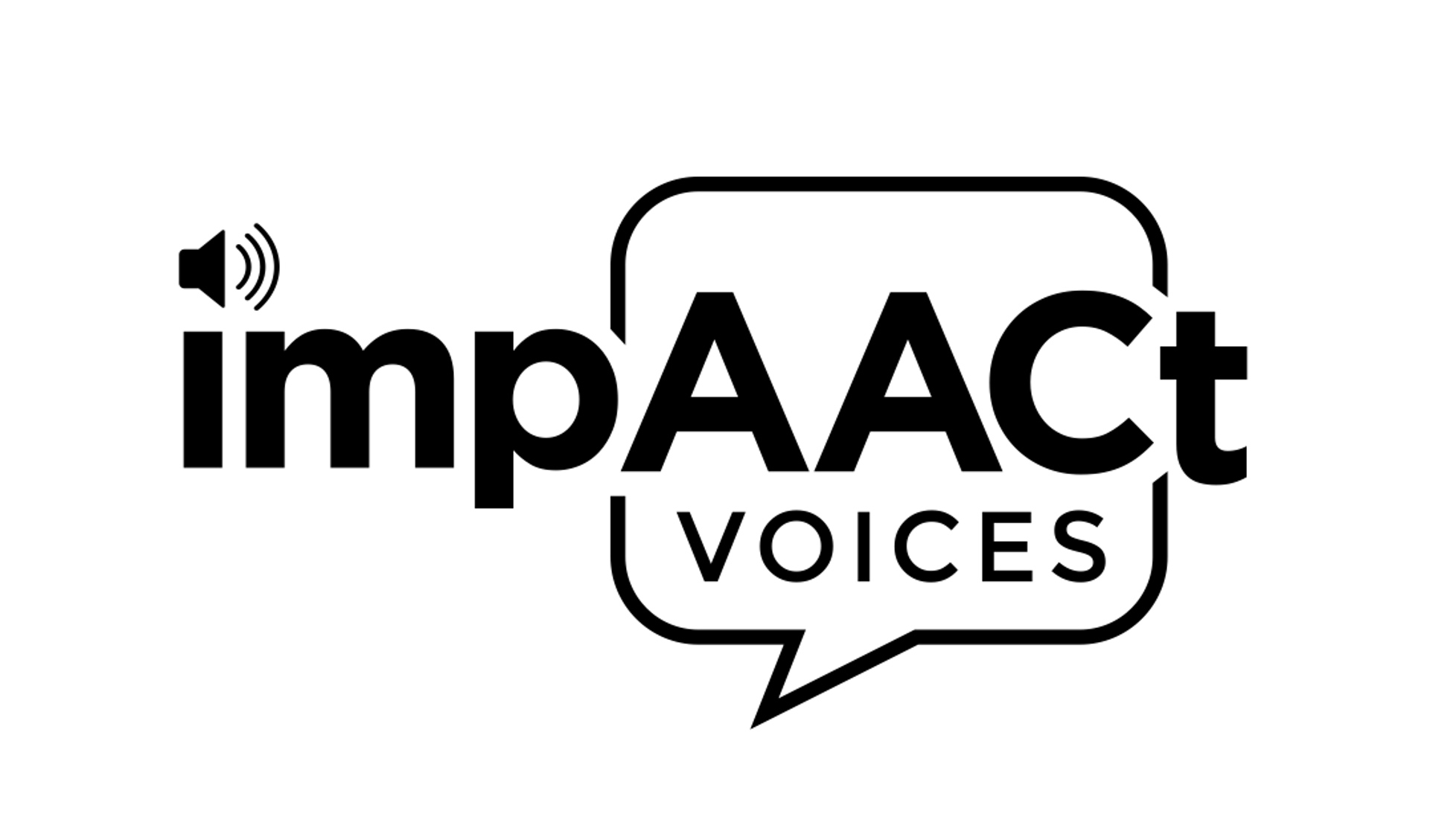 AAC users together to empower them to make an impact in their community. ImpAACt Voices creates a space where AAC users of different abilities and experience come together to talk, laugh, encourage each other, and enjoy the company of others like ourselves. For more information on ImpAACt Voices and to get involved visit our website, connect with us on Facebook, Instagram, and LinkedIn.
AAC users together to empower them to make an impact in their community. ImpAACt Voices creates a space where AAC users of different abilities and experience come together to talk, laugh, encourage each other, and enjoy the company of others like ourselves. For more information on ImpAACt Voices and to get involved visit our website, connect with us on Facebook, Instagram, and LinkedIn.
IMPACT Center at University of Pittsburgh
The IMPACT Center, through a NIDILRR-funded grant, supports AT innovators by providing tools to understand the barriers and facilitators associated with successful assistive technology tech transfer (ATTT) and resources to increase the capacity of researchers and entrepreneurs to perform tech transfer and commercialization successfully. (NIDILRR is National Institute on Disability, Independent Living and Rehabilitation Research. IMPACT is Initiative to Mobilize Partnerships for Successful Assistive Technology Translation.)
(NIDILRR is National Institute on Disability, Independent Living and Rehabilitation Research. IMPACT is Initiative to Mobilize Partnerships for Successful Assistive Technology Translation.)
Infinitec
 Infinitec, short for Infinite Potential Through Technology, is a unique assistive technology project spearheaded by the United Cerebral Palsy of Greater Chicago. Infinitec aims to improve access to technology that advances the independence of children and adults with learning differences. Infinitec accomplishes its mission through a rich and diverse set of partnerships and programs, all focused on providing information, training, access to equipment, expertise and research to both educators and the vendor community.
Infinitec, short for Infinite Potential Through Technology, is a unique assistive technology project spearheaded by the United Cerebral Palsy of Greater Chicago. Infinitec aims to improve access to technology that advances the independence of children and adults with learning differences. Infinitec accomplishes its mission through a rich and diverse set of partnerships and programs, all focused on providing information, training, access to equipment, expertise and research to both educators and the vendor community.
Innovations in Special Education Technology – A Division of CEC
Innovations in Special Education Technology (formerly TAM) is a Division of the Council for Exceptional Children focused on providing educators (current and future), professionals, and family members innovative technology-based solutions for today’s needs. As an organization, ISET seeks to promote ways technology solutions can be further implemented in the lives of struggling learners and those with disabilities.
Iowa Educational Services for the Blind and Visually Impaired (Previously Iowa Braille School (IBS))
![]() With assistive technology, such as screen readers for the PC and Braille note takers, students can become more independent in many areas. The Iowa Braille School is able to provide consultative services on the selection and use of adaptive technology for educating early childhood children and school-age students who are blind or visually impaired in Iowa. The school’s Assistive Technology Consultant serves as liaison among local education agencies, area education agencies, and the Statewide System for Vision Services/Iowa Braille School (IBS). Instruction and consultative services for Teachers of the Visually Impaired is a focus of the IBS program. Through the Assistive Device Center, technology specific to the needs of students who are blind or visually impaired is loaned on a short-term basis for assessment and other purposes. Taking advantage of assistive technology opportunities through IBS as an Iowa state-wide system can help students to attain their highest potentials in this vital area.
With assistive technology, such as screen readers for the PC and Braille note takers, students can become more independent in many areas. The Iowa Braille School is able to provide consultative services on the selection and use of adaptive technology for educating early childhood children and school-age students who are blind or visually impaired in Iowa. The school’s Assistive Technology Consultant serves as liaison among local education agencies, area education agencies, and the Statewide System for Vision Services/Iowa Braille School (IBS). Instruction and consultative services for Teachers of the Visually Impaired is a focus of the IBS program. Through the Assistive Device Center, technology specific to the needs of students who are blind or visually impaired is loaned on a short-term basis for assessment and other purposes. Taking advantage of assistive technology opportunities through IBS as an Iowa state-wide system can help students to attain their highest potentials in this vital area.
The Iowa Center for Assistive Technology Education and Research (ICATER)
 The Iowa Center for Assistive Technology Education and Research (ICATER) located within the College of Education at the University of Iowa primarily works with Iowa’s pre-service education majors to provide assistive technology awareness and training through classes, lectures and unique hands-on experiences. Through its outreach program, ICATER also extends these training opportunities to students with disabilities, parents and education professionals statewide and regionally. ICATER also conducts and collaborates on research projects resulting in innovative methods and best practices of AT usage. Through its training programs and research projects, ICATER impacts many students with disabilities by providing access to a variety of AT devices, expanding the knowledge base and comfort level of teachers, incorporating AT into more of a part of the pre-service education process, and acting as a general resource for K-12 students and their families across the state of Iowa.
The Iowa Center for Assistive Technology Education and Research (ICATER) located within the College of Education at the University of Iowa primarily works with Iowa’s pre-service education majors to provide assistive technology awareness and training through classes, lectures and unique hands-on experiences. Through its outreach program, ICATER also extends these training opportunities to students with disabilities, parents and education professionals statewide and regionally. ICATER also conducts and collaborates on research projects resulting in innovative methods and best practices of AT usage. Through its training programs and research projects, ICATER impacts many students with disabilities by providing access to a variety of AT devices, expanding the knowledge base and comfort level of teachers, incorporating AT into more of a part of the pre-service education process, and acting as a general resource for K-12 students and their families across the state of Iowa.
The International Society for Augmentative and Alternative Communication (ISAAC)
 ISAAC, The International Society for Augmentative and Alternative Communication, is a membership organization working to improve the lives of children and adults with complex communication needs. ISAAC’s goal is to create worldwide awareness about how AAC can help individuals without speech. ISAAC accomplishes this by sharing information and promoting innovative approaches to research, technology and literacy through AAC. Activities include hosting the ISAAC biennial conference, sponsoring projects, and offering awards and scholarships. ISAAC was formed in 1983. ISAAC has Chapters in 14 countries and more than 3,600 members in 62 different countries. ISAAC members include people who use AAC, their families, therapists, teachers, students, doctors, researchers, organizations and companies that make communication aids. The ISAAC International office is located in Toronto, Canada. ISAAC’s Vision is that AAC will be recognized, valued and used throughout the world. ISAAC’s Mission is to promote the best possible communication for people with complex communication needs. ISAAC is a Non-Governmental Organization in consultative status with the United Nations Economic and Social Council (ECOSOC).
ISAAC, The International Society for Augmentative and Alternative Communication, is a membership organization working to improve the lives of children and adults with complex communication needs. ISAAC’s goal is to create worldwide awareness about how AAC can help individuals without speech. ISAAC accomplishes this by sharing information and promoting innovative approaches to research, technology and literacy through AAC. Activities include hosting the ISAAC biennial conference, sponsoring projects, and offering awards and scholarships. ISAAC was formed in 1983. ISAAC has Chapters in 14 countries and more than 3,600 members in 62 different countries. ISAAC members include people who use AAC, their families, therapists, teachers, students, doctors, researchers, organizations and companies that make communication aids. The ISAAC International office is located in Toronto, Canada. ISAAC’s Vision is that AAC will be recognized, valued and used throughout the world. ISAAC’s Mission is to promote the best possible communication for people with complex communication needs. ISAAC is a Non-Governmental Organization in consultative status with the United Nations Economic and Social Council (ECOSOC).
ISAAC Canada 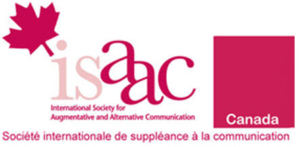
ISAAC Canada is a recognized chapter of ISAAC, the International Society for Augmentative and Alternative Communication whose aim it is to promote the best possible communication for people with complex communication needs across Canada.
The Job Accommodation Network (JAN)
 The Job Accommodation Network (JAN) is the leading source of free, expert, and confidential technical assistance on workplace accommodations, the Americans with Disabilities Act as amended (ADAAA) and related legislation, and self-employment options for people with disabilities. Working toward practical solutions that benefit both employer and employee, JAN helps people with disabilities enhance their employability, and shows employers how to capitalize on the value and talent that people with disabilities add to the workplace. JAN customers include employers, service providers, as well as people with disabilities and their families. JAN’s professional consultants provide technical assistance on practical accommodations solutions at every stage of employment; the interactive accommodation process; disability and employment related legislation; electronic accessibility of on-line application tracking systems; assistive technologies; localized referrals, and the business case for disability inclusion.
The Job Accommodation Network (JAN) is the leading source of free, expert, and confidential technical assistance on workplace accommodations, the Americans with Disabilities Act as amended (ADAAA) and related legislation, and self-employment options for people with disabilities. Working toward practical solutions that benefit both employer and employee, JAN helps people with disabilities enhance their employability, and shows employers how to capitalize on the value and talent that people with disabilities add to the workplace. JAN customers include employers, service providers, as well as people with disabilities and their families. JAN’s professional consultants provide technical assistance on practical accommodations solutions at every stage of employment; the interactive accommodation process; disability and employment related legislation; electronic accessibility of on-line application tracking systems; assistive technologies; localized referrals, and the business case for disability inclusion.
Technical assistance is available:
- Over the phone: (800) 526-7234 (voice) or (877) 781-9403 (TTY)
- Skype: Janconsultants
- Email: jan@AskJAN.org
- Text: (304) 216-8189
- Online chat or through various social networking tools.
JAN also offers training, research, and a comprehensive website of practical solution oriented materials including the Searchable Online Accommodation Resource found at http://AskJAN.org. JAN is a service of the U.S. Department of Labor’s Office of Disability Employment Policy.
The Joy Zabala Fellowship in Assistive Technology and Accessible Educational Materials
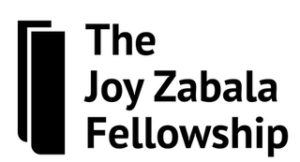 The Joy Zabala Fellowship in Assistive Technology and Accessible Educational Materials is a living legacy sustaining Joy’s lifelong mission to improve the outcomes for all students through the use of AT and AEM. The purpose of this initiative is to establish a focused development opportunity for emerging AT/AEM professionals to allow them to strengthen their expertise via mentored practice. Mentors and mentees will collaborate to develop and implement an approved work plan and will share their outcomes with other practitioners to benefit the field. The Fellowship is guided by a partnership between the Zabala family, the QIAT Leadership Team, CAST, ATIA, and members-at-large from the AT/AEM community.
The Joy Zabala Fellowship in Assistive Technology and Accessible Educational Materials is a living legacy sustaining Joy’s lifelong mission to improve the outcomes for all students through the use of AT and AEM. The purpose of this initiative is to establish a focused development opportunity for emerging AT/AEM professionals to allow them to strengthen their expertise via mentored practice. Mentors and mentees will collaborate to develop and implement an approved work plan and will share their outcomes with other practitioners to benefit the field. The Fellowship is guided by a partnership between the Zabala family, the QIAT Leadership Team, CAST, ATIA, and members-at-large from the AT/AEM community.
Lifesteps, Inc.
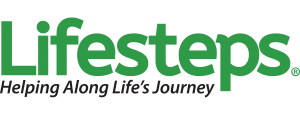 Lifesteps has a rich history of helping individuals and families with life’s changing needs for nearly a century. With program locations throughout western Pennsylvania, Lifesteps believes all people with special needs have the right to live to their fullest potential. Services for children, families, adults with special needs and seniors are designed to encourage growth, independence, confidence and dignity.
Lifesteps has a rich history of helping individuals and families with life’s changing needs for nearly a century. With program locations throughout western Pennsylvania, Lifesteps believes all people with special needs have the right to live to their fullest potential. Services for children, families, adults with special needs and seniors are designed to encourage growth, independence, confidence and dignity.
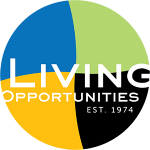
Living Opportunities
Living Opportunities has become the organization others look to for leadership and innovation in Oregon’s disability rights movement. Our Assistive Technology team works to ensure that all individuals experiencing a developmental disability have access to the tools to help them communicate, gain independence, build relationships, and increase their overall quality of life.
Mada – Assistive Technology Center Qatar
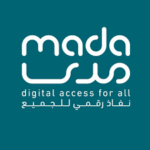 Mada – Assistive Technology Center Qatar is a private institution for public benefit, which was founded in 2010 as an initiative that aims at promoting digital inclusion and building a technology-based community that meets the needs of persons with functional limitations (PFLs) – persons with disabilities (PWDs) and the elderly in Qatar. Mada today is the world’s Center of Excellence in digital access in Arabic, as we were able to get Qatar to rank first worldwide on the Digital Accessibility Rights Evaluation Index (DARE) 2020, issued by the United Nation’s Global Initiative for Inclusive Information and Communication Technologies (G3ict).
Mada – Assistive Technology Center Qatar is a private institution for public benefit, which was founded in 2010 as an initiative that aims at promoting digital inclusion and building a technology-based community that meets the needs of persons with functional limitations (PFLs) – persons with disabilities (PWDs) and the elderly in Qatar. Mada today is the world’s Center of Excellence in digital access in Arabic, as we were able to get Qatar to rank first worldwide on the Digital Accessibility Rights Evaluation Index (DARE) 2020, issued by the United Nation’s Global Initiative for Inclusive Information and Communication Technologies (G3ict).
Mid America Conference of
Rehabilitation Teachers (MACRT)
 The Mid America Conference of Rehabilitation Teachers (MACRT) is a professional organization of rehabilitation teachers of the blind from both private and public sectors across the nation. MACRT conducts annual professional development conferences for practitioners and other personnel in the field of blind rehabilitation, publishes a quarterly newsletter and awards scholarships annually to students in university degree programs in rehabilitation teaching.
The Mid America Conference of Rehabilitation Teachers (MACRT) is a professional organization of rehabilitation teachers of the blind from both private and public sectors across the nation. MACRT conducts annual professional development conferences for practitioners and other personnel in the field of blind rehabilitation, publishes a quarterly newsletter and awards scholarships annually to students in university degree programs in rehabilitation teaching.
The National Aphasia Association (NAA)
 The National Aphasia Association (NAA), founded in 1987, is the first national organization dedicated to advocating on behalf of persons with aphasia and their families. The NAA is at the forefront of promoting public education, research, rehabilitation and support services to assist people with aphasia and their families. Our mission is to educate the public to know that the word “aphasia” describes an impairment of the ability to communicate, not an impairment of intellect, and to make people with aphasia, their families, support systems, and health care professionals aware of resources to recover lost skills to the extent possible, to compensate for skills that will not be recovered and to minimize the psychosocial impact of the language impairment.
The National Aphasia Association (NAA), founded in 1987, is the first national organization dedicated to advocating on behalf of persons with aphasia and their families. The NAA is at the forefront of promoting public education, research, rehabilitation and support services to assist people with aphasia and their families. Our mission is to educate the public to know that the word “aphasia” describes an impairment of the ability to communicate, not an impairment of intellect, and to make people with aphasia, their families, support systems, and health care professionals aware of resources to recover lost skills to the extent possible, to compensate for skills that will not be recovered and to minimize the psychosocial impact of the language impairment.
 National Joint Committee on the Communication Needs of Persons with Severe Disabilities
National Joint Committee on the Communication Needs of Persons with Severe Disabilities
The purpose of the National Joint Committee for the Communication Needs of Persons with Severe Disabilities is to advocate for individuals with significant communication support needs resulting from intellectual disability, that may coexist with autism, sensory and/or motor limitations. The Committee consists of members from the American Speech-Language-Hearing Association, American Association on Intellectual and Developmental Disabilities, American Occupational Therapy Association, American Physical Therapy Association, Association of Assistive Technology Act Programs, Council for Exceptional Children Division for Communicative Disabilities and Deafness, RESNA, TASH and the United States Society for Augmentative and Alternative Communication (USSAAC). The interdisciplinary composition of this committee reflects the pervasive importance of communication in all spheres of human functioning and across traditional boundaries. The shared commitment to promoting effective communication by persons with severe disabilities thus provides a common ground on which the disciplines represented by the member organizations can unite in their efforts to improve the quality of life of such persons.
The National Technical Institute for the Deaf (NTID)
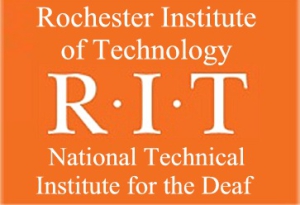 The National Technical Institute for the Deaf (NTID), a college of Rochester Institute of Technology (RIT), was created by Congress in 1965 to offer post-secondary technical education to students with hearing loss. Today, more than 1,350 deaf, hard-of-hearing and interpreting students study, live and socialize on the RIT campus with more than 14,000 hearing students, making NTID truly a college like no other. More than 125 sign language interpreters also work at RIT; and 90,000 hours of note taking, captioning and tutoring each year make it one of the most accessible colleges for students with hearing loss anywhere. NTID’s Center on Access Technology investigates, evaluates and reports on the most effective and efficient use of access technologies and trains individuals in their use to benefit students with hearing loss in college. It is the first and only organization in the world dedicated to advancing access technologies for deaf and hard-of-hearing students.
The National Technical Institute for the Deaf (NTID), a college of Rochester Institute of Technology (RIT), was created by Congress in 1965 to offer post-secondary technical education to students with hearing loss. Today, more than 1,350 deaf, hard-of-hearing and interpreting students study, live and socialize on the RIT campus with more than 14,000 hearing students, making NTID truly a college like no other. More than 125 sign language interpreters also work at RIT; and 90,000 hours of note taking, captioning and tutoring each year make it one of the most accessible colleges for students with hearing loss anywhere. NTID’s Center on Access Technology investigates, evaluates and reports on the most effective and efficient use of access technologies and trains individuals in their use to benefit students with hearing loss in college. It is the first and only organization in the world dedicated to advancing access technologies for deaf and hard-of-hearing students.
 Nebraska Assistive Technology Partnership
Nebraska Assistive Technology Partnership
The Nebraska Assistive Technology Partnership (ATP), through collaboration, provides all Nebraskans access and opportunities to better live, learn, and work. The NE ATP engages in partnerships with different agencies and organizations to create seamless services across programs and ensures that Nebraskans received quality assistive technology services.
The Nika Project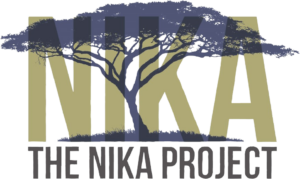
The Nika Project is a non-profit organization of volunteer professionals who collaborate with educators around the world to build capacity for communication and learning. We rely on donations of time, equipment, and funds to support our work. Our mission is to Engage, Educate and Empower special needs communities to develop sustainable programs for people with communication and learning needs, including augmentative and alternative communication (AAC) and assistive technology (AT). The name Nika originates from a Zulu word meaning “to give” or “to supply”. We adopted it in 2013 during our first project with schools in South Africa, hence the name, Nika Project. Today, our global partners include programs in Argentina, Bali, Brazil, Cambodia, Guatemala, India, Malaysia, the Micronesian Region, Nigeria, Peru, the Philippines, Saudi Arabia, Sri Lanka, Trinidad-Tobago, UAE and the San Francisco Bay Area within the USA.
NMEDA-QAP
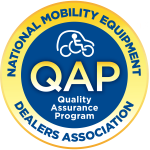
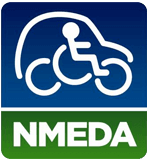 NMEDA-QAP is the branded name of the National Mobility Equipment Dealers Association’s quality assurance program that is the only one of its kind in the automotive mobility industry. With over three million people in North America using wheelchairs and other mobility aids, QAP is the only program that offers the assurance of safe and reliable transportation through structured and documented quality assessment. QAP requires compliance with a set of rules and guidelines established to provide consistency of quality and verification to all applicable federal motor vehicle safety standards. All NMEDA members and associates communicate regularly to establish best practices and continuously improve the mobility industry. While consumers often have a choice of where to buy or have services provided, take the guesswork out of the equation and insist on QAP.
NMEDA-QAP is the branded name of the National Mobility Equipment Dealers Association’s quality assurance program that is the only one of its kind in the automotive mobility industry. With over three million people in North America using wheelchairs and other mobility aids, QAP is the only program that offers the assurance of safe and reliable transportation through structured and documented quality assessment. QAP requires compliance with a set of rules and guidelines established to provide consistency of quality and verification to all applicable federal motor vehicle safety standards. All NMEDA members and associates communicate regularly to establish best practices and continuously improve the mobility industry. While consumers often have a choice of where to buy or have services provided, take the guesswork out of the equation and insist on QAP.
The Pass It On Center (PIOC)
 The Pass It On Center (PIOC), the premier National Assistive Technology Device Reutilization and Coordination Technical Assistance Center, focuses on expanding the options of people with disabilities by increasing access to appropriate, reutilized assistive technology in a manner that supports the interests of users, manufacturers, and suppliers. The Pass It On Center is funded under a grant from the Rehabilitation Services Administration and is administered by Tools for Life, the Georgia Assistive Technology Program of the Georgia Department of Labor.
The Pass It On Center (PIOC), the premier National Assistive Technology Device Reutilization and Coordination Technical Assistance Center, focuses on expanding the options of people with disabilities by increasing access to appropriate, reutilized assistive technology in a manner that supports the interests of users, manufacturers, and suppliers. The Pass It On Center is funded under a grant from the Rehabilitation Services Administration and is administered by Tools for Life, the Georgia Assistive Technology Program of the Georgia Department of Labor.
PATINS Project
![]() The PATINS Project is a state-wide technical assistance network for the provision of assistive/accessible technology for assisting local educational agencies in the utilization and creation of accessible learning environments and instructional materials. As a sole source provider for the Indiana Department of Administration and the Indiana Department of Education, the PATINS Project provides a complete state NIMAS delivery process, inclusive of assistive and accessible technologies, designed to support the Indiana Department of Education and local educational agencies in addressing the statutory and final regulatory requirements of the Individuals with Disabilities Education Act of 2004.
The PATINS Project is a state-wide technical assistance network for the provision of assistive/accessible technology for assisting local educational agencies in the utilization and creation of accessible learning environments and instructional materials. As a sole source provider for the Indiana Department of Administration and the Indiana Department of Education, the PATINS Project provides a complete state NIMAS delivery process, inclusive of assistive and accessible technologies, designed to support the Indiana Department of Education and local educational agencies in addressing the statutory and final regulatory requirements of the Individuals with Disabilities Education Act of 2004.
Quality Indicators in Assistive Technology (QIAT)
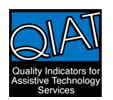 The QIAT Community is a nationwide grassroots group that includes hundreds of individuals who provide input into the ongoing process of identifying, disseminating, and implementing a set of widely-applicable Quality Indicators for Assistive Technology Services in School Settings that can be used as a tool to support:
The QIAT Community is a nationwide grassroots group that includes hundreds of individuals who provide input into the ongoing process of identifying, disseminating, and implementing a set of widely-applicable Quality Indicators for Assistive Technology Services in School Settings that can be used as a tool to support:
- School districts as they strive to develop and provide quality assistive technology services aligned to federal, state and local mandates
- Assistive technology service providers as they evaluate and constantly improve their services
- Consumers of assistive technology services as they seek adequate assistive technology services which meet their needs
- Universities and professional developers as they conduct research and deliver programs that promote the development of the competencies needed to provide quality assistive technology services
- Policy makers as they attempt to develop judicious and equitable policies related to assistive technology services.
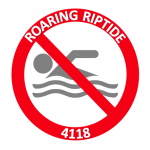 Roaring Riptide: FRC Team 4118
Roaring Riptide: FRC Team 4118
FRC Team 4118: Roaring Riptide is a FIRST Robotics Competition Team based out of P.K. Yonge Developmental Research School in Gainesville, FL. The team is made up of a diverse group of students that are challenged each year to design and build a robot in six weeks that can compete in an international competition. The team strives to inspire young people by engaging them in exciting hands-on programs that encourage innovation and build expertise in science, technology, engineering, and math (STEM). The students also work towards raising awareness and excitement in STEM with local and national outreach efforts. Part of these outreach efforts include aiding the AT community by training students on how to switch adapt toys.
Rehabilitation Engineering and Assistive Technology Society of North America (RESNA)
RESNA, the Rehabilitation Engineering and Assistive Technology Society of North America, is the premier professional organization dedicated to promoting the health and well-being of people with disabilities through increasing access to technology solutions. RESNA advances the field by offering certification, continuing education, and professional development; developing assistive technology standards; promoting research and public policy; and sponsoring forums for the exchange of information and ideas to meet the needs of our multidisciplinary constituency.
Rehabilitation Engineering Research Center on Augmentative and Alternative Communication (RERC on AAC)
 The RERC on AAC is a collaborative center committed to advancing knowledge and producing innovative engineering solutions in augmentative and alternative communication (AAC). Our research and development program will emphasize strong tech transfer and employ a comprehensive dissemination plan to improve outcomes for children and adults with both developmental and acquired disabilities across the life span. We also will support a range of training and dissemination activities. Our goal is that the AAC technologies and knowledge generated by the RERC on AAC will enable individuals with complex communication needs to achieve the basic human right of communication, and to maximize their participation in education, employment, health and community activities. The work of the RERC on AAC is supported by a grant from the National Institute on Disability, Independent Living, and Rehabilitation Research.
The RERC on AAC is a collaborative center committed to advancing knowledge and producing innovative engineering solutions in augmentative and alternative communication (AAC). Our research and development program will emphasize strong tech transfer and employ a comprehensive dissemination plan to improve outcomes for children and adults with both developmental and acquired disabilities across the life span. We also will support a range of training and dissemination activities. Our goal is that the AAC technologies and knowledge generated by the RERC on AAC will enable individuals with complex communication needs to achieve the basic human right of communication, and to maximize their participation in education, employment, health and community activities. The work of the RERC on AAC is supported by a grant from the National Institute on Disability, Independent Living, and Rehabilitation Research.
The Special Education Assistive Technology (SEAT) 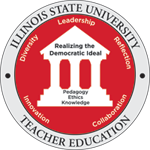
The Special Education Assistive Technology (SEAT) Center at Illinois State University is a leader in preparing teachers and other education professionals to use technology that supports students with disabilities in Pre-K – 12 classrooms.
Spectrios Logo Spectrios Institute for Low Vision
 Spectrios Logo Spectrios Institute for Low Vision’s mission is to provide people with vision loss with professional examinations, assistive devices and the training necessary to maximize their vision enabling them to function independently at home, school, work and within the community.
Spectrios Logo Spectrios Institute for Low Vision’s mission is to provide people with vision loss with professional examinations, assistive devices and the training necessary to maximize their vision enabling them to function independently at home, school, work and within the community.
Stand Among Friends
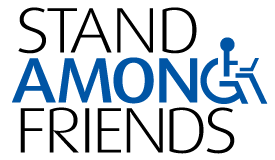 Stand Among Friends is a nonprofit organization located on the campus of Florida Atlantic University in Boca Raton, Florida. The organization promotes opportunities for people with disabilities to live a life without limits and experience the highest degree of independence and success in their communities. Stand Among Friends executes its mission through practical research, education, technology, and employment services for college students and adults with disabilities.
Stand Among Friends is a nonprofit organization located on the campus of Florida Atlantic University in Boca Raton, Florida. The organization promotes opportunities for people with disabilities to live a life without limits and experience the highest degree of independence and success in their communities. Stand Among Friends executes its mission through practical research, education, technology, and employment services for college students and adults with disabilities.
State Leaders in Assistive Technology in Education (SLATE)
 State Leaders in Assistive Technology in Education (SLATE) exists to develop, support and maintain collaborative work among assistive technology leaders designated by state departments of education in a way that increases awareness, understanding and use of assistive technology and Universal Design for Learning as a tool for educational participation and achievement. SLATE seeks to promote alignment and common understanding, ensures accountability for services, and explores issues of importance through Committees of Common Interest.
State Leaders in Assistive Technology in Education (SLATE) exists to develop, support and maintain collaborative work among assistive technology leaders designated by state departments of education in a way that increases awareness, understanding and use of assistive technology and Universal Design for Learning as a tool for educational participation and achievement. SLATE seeks to promote alignment and common understanding, ensures accountability for services, and explores issues of importance through Committees of Common Interest.
State Leaders of Universal Design for Learning in Education
 State Leaders of Universal Design for Learning in Education is a community of practice established in 2015. The purpose of SLUDLE is to develop, support and maintain collaborative work among universal design for learning leaders designated by state departments of education in a way that increases awareness and an understanding of universal design for learning as an instructional framework to increase student educational participation and academic achievement. In addition, SLUDLE seeks to build connections with other organizations that lead to the provision of quality services that promote participation and high achievement for all students.
State Leaders of Universal Design for Learning in Education is a community of practice established in 2015. The purpose of SLUDLE is to develop, support and maintain collaborative work among universal design for learning leaders designated by state departments of education in a way that increases awareness and an understanding of universal design for learning as an instructional framework to increase student educational participation and academic achievement. In addition, SLUDLE seeks to build connections with other organizations that lead to the provision of quality services that promote participation and high achievement for all students.
Touch the Future, Inc. (TTF)
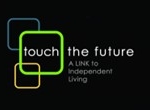 Touch the Future, Inc. (TTF) is a 501(c) 3 nonprofit organization and member of the Global Alliance Partners providing individuals who are disabled, seniors, qualified Veterans or from disadvantaged communities with Computer, Durable Medical Equipment, and Assistive Technology services and devices. TTF supports other nonprofit organizations and educational programs. In addition we offer comprehensive assessment, consulting and training services including but not limited to ADA and accessibility, Life Planning, and continuing education. TTF is a Paralymic Sports Club. Touch the Future is home of A LINK, BlueAssist®, ReBoot™, Regained Mobility, Signaids and the PAW Center’s specialized programs. We are A LINK to independent living and Touch the Future of lives each day. Our Vision is a technologically connected world that is healthy, accessible and inclusive providing equal opportunities and maximum independence for all. Our Mission is to create accessible, inclusive and environmentally sustainable communities that increase opportunities for independence, health and improved quality of life for individuals who are disabled, seniors, qualified Veterans, or from disadvantaged communities. We are committed to the use of technology and our programs and services to assist individuals to successfully meet life goals. We strive to ensure that technology is accessible and affordable to all.
Touch the Future, Inc. (TTF) is a 501(c) 3 nonprofit organization and member of the Global Alliance Partners providing individuals who are disabled, seniors, qualified Veterans or from disadvantaged communities with Computer, Durable Medical Equipment, and Assistive Technology services and devices. TTF supports other nonprofit organizations and educational programs. In addition we offer comprehensive assessment, consulting and training services including but not limited to ADA and accessibility, Life Planning, and continuing education. TTF is a Paralymic Sports Club. Touch the Future is home of A LINK, BlueAssist®, ReBoot™, Regained Mobility, Signaids and the PAW Center’s specialized programs. We are A LINK to independent living and Touch the Future of lives each day. Our Vision is a technologically connected world that is healthy, accessible and inclusive providing equal opportunities and maximum independence for all. Our Mission is to create accessible, inclusive and environmentally sustainable communities that increase opportunities for independence, health and improved quality of life for individuals who are disabled, seniors, qualified Veterans, or from disadvantaged communities. We are committed to the use of technology and our programs and services to assist individuals to successfully meet life goals. We strive to ensure that technology is accessible and affordable to all.
USSAAC
 USSAAC is an organization dedicated to supporting the needs and desires of people who use AAC, as well as the family members, professionals, and manufacturers making up this community. Augmentative and Alternative Communication refers to methods of communication that enhance (augment) or replace (alternative) conventional forms of expression. USSAAC members join forces to improve the services, resources and products used by children and adults who use and optimize AAC methods in order to communicate. USSAAC strives to enhance the communication effectiveness and, ultimately, the independence of persons desiring access to an alternative communication system. In fact, USSAAC is the only national association specifically designed to address the needs of persons who are experience significant difficulty speaking and/or writing (communicating). We are also dedicated to answering the needs of individuals who support the AAC community through therapy, special education or the creation and manufacturing of technology.
USSAAC is an organization dedicated to supporting the needs and desires of people who use AAC, as well as the family members, professionals, and manufacturers making up this community. Augmentative and Alternative Communication refers to methods of communication that enhance (augment) or replace (alternative) conventional forms of expression. USSAAC members join forces to improve the services, resources and products used by children and adults who use and optimize AAC methods in order to communicate. USSAAC strives to enhance the communication effectiveness and, ultimately, the independence of persons desiring access to an alternative communication system. In fact, USSAAC is the only national association specifically designed to address the needs of persons who are experience significant difficulty speaking and/or writing (communicating). We are also dedicated to answering the needs of individuals who support the AAC community through therapy, special education or the creation and manufacturing of technology.
Voices of Hope for Aphasia, LLC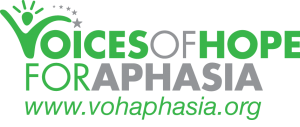
Voices of Hope for Aphasia is a community based aphasia program for people living with aphasia and their families. We reconnect people, living with aphasia, with their lives through innovative programs. Our programs:
- Rebuild self-esteem through successful experiences,
- improve the communication accessibility of the community,
- foster communication in groups,
- provide training and tools to improve relationships with family and friends,
- and educate the public about aphasia.
The Voices of Hope for Aphasia Danniella Muheim STARS program provides hands-on training and support for people with aphasia and their families in the use of technology in a fun and social environment.
Technology may be used to augment communication, for home practice, for connecting with friends and family, or to return to work and life activities.

